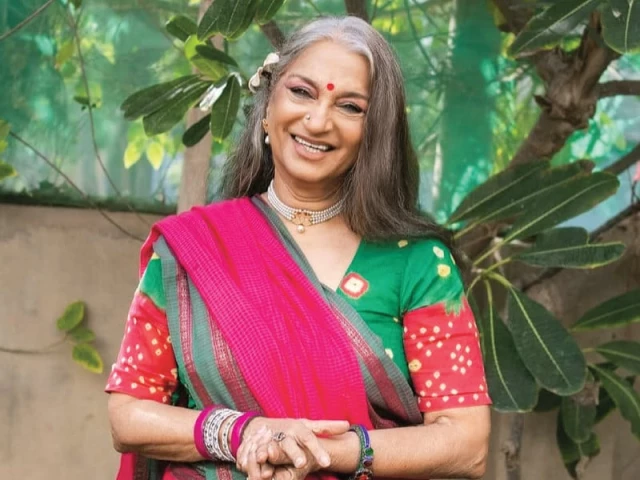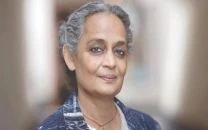Television can change hearts'
Sheema Kermani wants Pakistani dramas to do better

Sheema Kermani is many things: a classical dancer, theatre practitioner, tireless feminist, and a thorn in the side of status-quo patriarchy since 1978. She's also, it turns out, really tired of Pakistani dramas peddling the same tired plotlines. "Why is it that every drama now has a cheating husband? Why is every mother-in-law evil? And why is every woman out to steal someone else's man?" she asked, her voice a mix of incredulity and frustration on the FHM podcast which aired on YouTube on Saturday. "This is not real life. I haven't seen this happening all around me."
Her complaint is less about storytelling and more about what stories are being told, and at whose expense. Kermani, who began her political and artistic journey under General Ziaul Haq's dictatorship, has spent decades pushing against narratives that reinforce patriarchy. And in 2025, that battle continues, not on state TV, but in prime-time soaps watched by millions.
"It's become a fashion now, the affair, the evil saas, the helpless wife. These dramas are turning paranoia into culture," she said. "A woman whose husband is loyal now starts suspecting him, just because she sees the same story on TV every night."
And for Kermani, this is a social epidemic with real-world consequences. She believes that what we consume as entertainment seeps into how we think, feel, and behave, especially in a country where access to media is far-reaching but media literacy is not. "The media has a huge responsibility," she insisted. "Instead, they're doing the opposite, reinforcing harmful ideas."
The way to our hearts
Kermani traces the roots of this media rot to the era of dictatorship, when state-sponsored patriarchy was broadcast directly into people's homes. "From that time on, boys were raised with the idea that their sisters are less than them. That they are superior, more intelligent, more powerful," she said. "And that belief was reinforced not just by men, but by mothers too."
This critique is important especially when many women, too, uphold the very systems that oppress them. "Many mothers think they must invest everything in their sons because they'll support them in old age," she said. "But what actually happens? Research and our own experience show that it's often daughters who are the real support systems."
This belief, that boys must be coddled and entitled while girls must be modest and sacrificial, creates a gender imbalance from childhood, one that, according to Kermani, makes men more susceptible to consuming and believing the misogynistic content on TV. "The younger generation of boys are growing up worse than before," she said. "We failed to give them the right values. Now we're watching that failure unfold on screen, and in society."
And when the media doubles down on these patterns, turning them into serialised fiction week after week, it reinforces them even more. "What we're seeing now is psychological patterning. Boys who see their fathers disrespect or abuse their mothers are more likely to repeat those behaviors," she said. "Art imitates life, yes, but it can also deform it."
Kermani doesn't believe all mothers-in-law are evil. She doesn't think all husbands are cheaters. And she certainly doesn't believe that every working woman is a homewrecker. "This isn't even escapism," she quipped. "It's just lazy, damaging storytelling."
So, what's the alternative? For Kermani, the antidote lies in the arts, the very thing she's dedicated her life to. "Culture, music, poetry, dance; these are the tools that move people away from violence and toward beauty," she said. "They create empathy. They create connections. That's what we need."
The irony, of course, is that a woman who was once banned from performing classical dance under Zia's regime is now pleading with mainstream media to show less moral chaos and more nuance. "At least back then, they told me not to perform," she laughed. "Now, I can fill up a hall with 500 people and still worry which one of them thinks they'll go to heaven by stopping me."
But she's not stopping, not from dancing, not from critiquing, and certainly not from demanding better. "Television can change hearts - the story must, too," she said.





















COMMENTS
Comments are moderated and generally will be posted if they are on-topic and not abusive.
For more information, please see our Comments FAQ